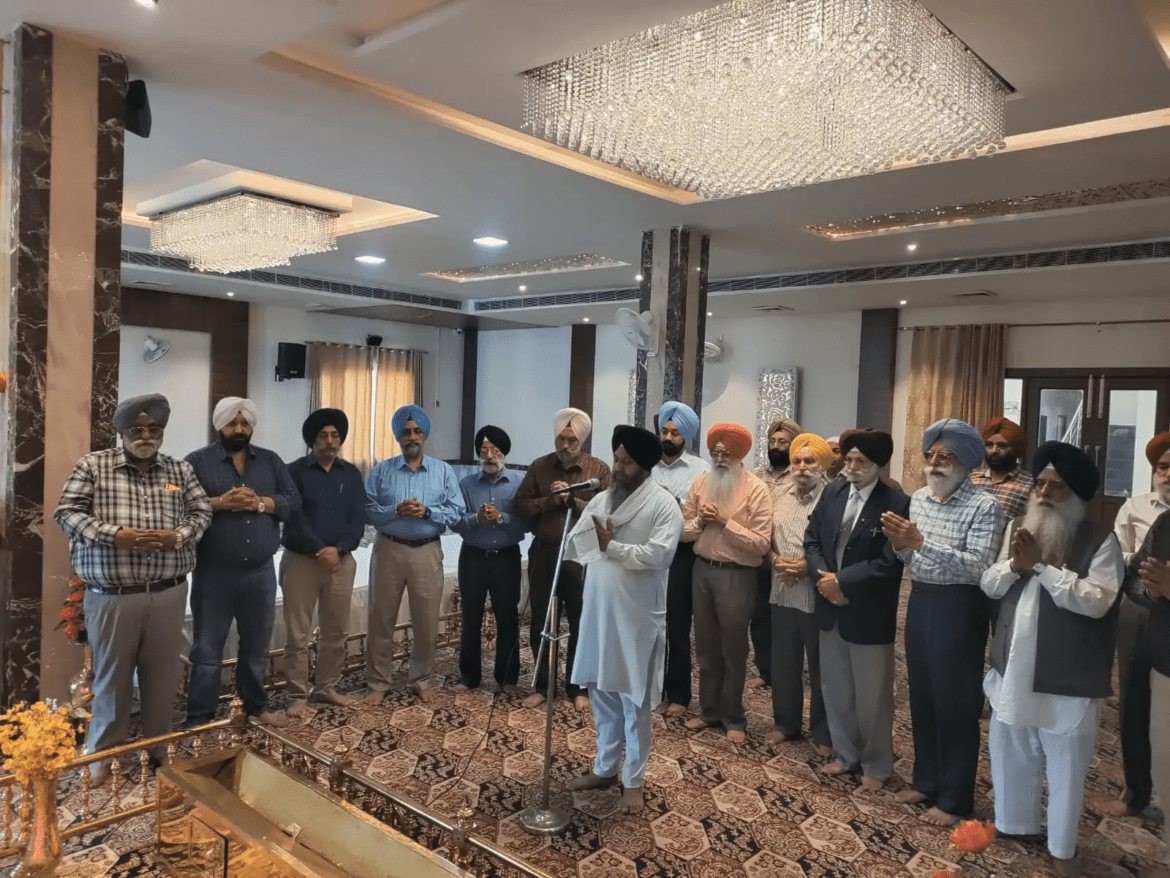AI Generated Summary
- With the active support from the eminent Punjabi writer Bhai Vir Singh and other Sikhs it worked for the political rights of Sikhs as a minority in the British rule and for the correction of distortions in the Sikh religious practice by the managers of Gurudwaras.
- To provide them a collective platform and leadership, the Chief Khalsa Diwan was established and in its first session started with the ardas (prayer) by Teja Singh Bhasaur, Bhai Arjan Singh and Sundar Singh Majithia were elected its first president and secretary respectively while and Sodhi Sujan Singh was elected as an additional secretary.
- As an elitist organisation, it adopted the middle path of cooperating with government to gain power and patronage but at the same time confronting the proselytising activities by the Christian missionaries and defending the interests of the Sikhs.
The Chief Khalsa Diwan, founded as an umbrella organisation with affiliation of a large number of Singh Sabhas is now 121-year-old. It was registered as a non-political educational, socio-cultural and religious body of the Sikhs under the name of Chief Khalsa Diwan Charitable Society. Its first session was held on October 30, 1902 in Malvai Bunga at Harmandir Sahib Amritsar. With the active support from the eminent Punjabi writer Bhai Vir Singh and other Sikhs it worked for the political rights of Sikhs as a minority in the British rule and for the correction of distortions in the Sikh religious practice by the managers of Gurudwaras. As an elitist organisation, it adopted the middle path of cooperating with government to gain power and patronage but at the same time confronting the proselytising activities by the Christian missionaries and defending the interests of the Sikhs. It submitted several memorandums to the British government to protect the rights of the Sikhs as a minority.
Around 1870s there were conversions from Hindu, Muslim, and Sikh religions to the Christian religions under the influence of Christian missionaries. So, in reaction to such conversions and for reforms in the Sikh religious practice to the its core tenets enshrined in the Guru Granth Sahib, the Singh Sabha movement started and several local Singh Sabhas were formed. To provide them a collective platform and leadership, the Chief Khalsa Diwan was established and in its first session started with the ardas (prayer) by Teja Singh Bhasaur, Bhai Arjan Singh and Sundar Singh Majithia were elected its first president and secretary respectively while and Sodhi Sujan Singh was elected as an additional secretary.
As its first initiative, the Central Khalsa Orphanage was set up on April 11, 1904. Shaheed Udham Singh lived in this orphanage. The Chief Khalsa Diwan now has several schools, colleges, orphanages, old age homes, hospitals and clinics. It publishes its newsletter, Khalsa Advocate.
Religious reform, being one its main objectives, Chief Khalsa Diwan has served to codify the Sikh rituals. On its initiative and efforts, Anand Marriage Act was passed in 1905. It worked for Gurudwara reforms movement and promotion of Punjabi language and literature. It has propagated education for both men and women and published books on Sikh history.
Although it developed differences with other Sikh bodies like Bhasaur Singh Sabha and the SGPC, and it was criticised as pro-British, there are its three major achievements: first, it could present Sikhism as a religion with its own ideology, rituals and tradition. Due to the efforts by the Chef Khalsa Diwan, the Anand Marriage Act was passed in the Imperial Legislative Council on October 22, 1909, establishing the separate Sikh identity. Second, it served as a common platform for disparate Sikh organisations, bringing them together with effective communication. Its decision-making was democratic and inclusive: on common and controversial issues, it created public opinion and held discussion, circulating the draft documents among various affiliated Singh Sabhas or by publishing them in journals and inviting the public to comment before finalising them. Third, it managed to deal with internal divisions among Sikhs to survive as a minority. It followed the policy of negotiation, compromise and accommodation. It understood that Sikhs could not survive in isolation; its leaders like Sunder Singh Majithia collaborated with other political groups and the British in the interest of the Sikh community as a whole.




